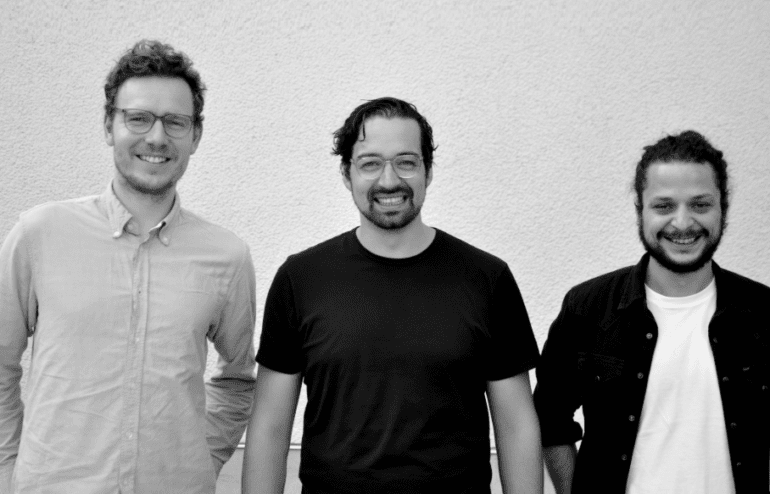TL;DR:
- Morressier, a Berlin-based startup, secures a $16.5 million investment.
- Funds to be used for go-to-market activities and strategic acquisitions.
- Morressier’s platform focuses on ensuring research integrity in academic publishing.
- It began as a conference material sharing platform with analytics capabilities.
- A recent study reveals a significant percentage of academic papers in 2020 were likely fabricated or plagiarized.
- Morressier takes a proactive stance with the ‘Integrity Manager’ product and proactive measures.
- Interest in the company surged following OpenAI’s ChatGPT.
- Morressier consolidates integrity checks in academic research.
- The client base includes prominent names in the scholarly publishing industry.
- Future plans involve scaling operations and advancing product innovation.
Main AI News:
Berlin-based startup, Morressier, has secured an impressive $16.5 million in a recent investment round, led by Molten Ventures, with participation from existing Series A investors Redalpine, Owl Ventures, and Cherry Ventures. The infusion of capital is earmarked for the expansion of go-to-market strategies and the evaluation of strategic acquisition opportunities.
Morressier, pronounced as “moʁɛsjˈe,” operates on the core belief that the scientific process should embody efficiency, trustworthiness, and fairness. It initially emerged as a platform facilitating the sharing of offline academic conference materials, specifically those presented at conferences. This collaborative approach to academic materials allowed for further augmentation through analytics, granting valuable insights into research trends and enabling researchers to discover each other’s work.
The pivotal role of Morressier’s technology came into sharper focus during the pandemic. The company’s $18 million Series A investment round in May 2021 underscored its commitment to growth and the enhancement of community and analytics features.
Maintaining Integrity in Academic Publishing
In the world of academic publishing, where research papers form the bedrock for further scientific exploration, the integrity of these works should be beyond question. However, a study published by German researchers on May 8, 2023, revealed disturbing statistics – nearly 34% of neuroscience papers published in 2020 were likely fabricated or plagiarized, with a similar trend observed in medicine at 24%. While this report awaits peer review, it provides damning evidence of the academic publishing sector’s vulnerability to so-called “paper mills” and commercial “editing services.”
These AI-backed paper mills specialize in selling counterfeit scientific manuscripts to students, scientists, and physicians grappling with pressure from academic institutions or university-affiliated hospitals.
Embracing the Age of AI
Morressier, recognizing the escalating problem, took a proactive stance on May 20, 2022, a year before the medRxiv report was released. They unveiled a new company direction, squarely focused on safeguarding the accuracy and integrity of early-stage research sharing. This commitment was reinforced a year later with the launch of Morressier’s ‘Integrity Manager’ product.
It’s essential to note that the data analyzed by medRxiv pertains to papers published in 2020, a time predating the full revelation of the capabilities of Artificial Intelligence by OpenAI’s ChatGPT.
In an exclusive interview with Tech.eu, Morressier co-founder Sami Benchekroun divulged that the launch of ChatGPT had an explosive impact, generating heightened interest in the company in the hours, days, and weeks that followed.
A Platform for Verified Scientific Truth
While acknowledging that Morressier isn’t the sole player committed to ensuring the validity of published academic research, Benchekroun emphasized their unique approach. Morressier has consolidated all integrity checks under a single umbrella, setting them apart.
With a client base boasting names like IOP Publishing, AAAS, ASCE, APS, and the Mayo Clinic, Morressier’s next steps involve scaling operations and advancing product innovation, courtesy of their recent $16.5 million Series B funding.
When asked about potential ventures outside of academia, Benchekroun didn’t rule out the possibility entirely but affirmed that Morressier’s primary focus remains firmly rooted in the realm of science: “Our goal is to establish the world’s platform of verified scientific truth. Let’s get the science right before we start exploring anything else.”
Othman Altalib, Morressier’s Chief Growth Officer, echoed this sentiment, stating, “Deepening our partnerships across the scholarly publishing industry is core to Morressier’s growth: it ensures that we remain aligned with and supportive of stakeholder needs. This latest investment is going to be of huge benefit to our customers and the broader scholarly publishing community, as we up the ante in the research integrity arms race on their behalf.”
Conclusion:
Morressier’s substantial investment and commitment to research integrity address a critical need in the academic publishing market. In an environment plagued by fraudulent research, Morressier’s consolidated approach to ensure the accuracy and validity of academic work positions them as a key player in the ongoing battle against academic misconduct. Their proactive stance and growing client base underscore their potential to shape the future of scholarly publishing by establishing a platform of verified scientific truth.

